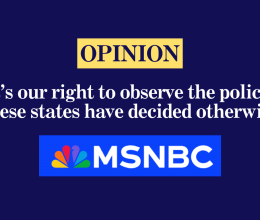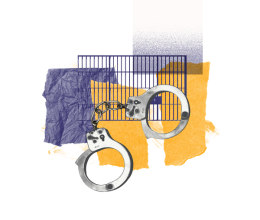Smart Reform Is Possible: States Reducing Incarceration Rates While Protecting Communities
Since President Richard Nixon first announced the "War on Drugs" 40 years ago, the United States has adopted "tough on crime" criminal justice policies that have given it the dubious distinction of having the highest incarceration rate in the world. These past 40 years of criminal justice policymaking have been characterized by overcriminalization, increasingly draconian sentencing and parole regimes, mass incarceration of impoverished communities of color, and rapid prison building. These policies have also come at a great expense to taxpayers. But budget shortfalls of historic proportions are finally prompting states across the country to realize that less punitive approaches to criminal justice not only make more fiscal sense but also better protect our communities.
This report highlights six traditionally "tough on crime" states — Texas, Mississippi, Kansas, South Carolina, Kentucky, and Ohio — that recently passed significant bipartisan reforms to reduce their prison populations and budgets. These states experienced declines in their crime rates while these new policies were in place. The report also highlights national trends in criminal justice legislation and offers a number of recommended ways that lawmakers in other states can reform their pre-trial, sentencing, parole, and probation systems. Smart Reform is Possible serves as an exciting and essential blueprint for states on the cusp of considering the reform of their corrections systems.
Related content

Inside One Governor’s Crusade to Tear Down the Wall Between Church...
September 4, 2024
Federal judge: ‘I don’t think robbers would ask for help’
June 7, 2024
New Louisiana law will make it harder for bystanders to film police...
May 30, 2024The 2024 Regular Session of the Louisiana Legislature
May 30, 2024
It’s our right to observe the police. These states have decided...
April 26, 2024
Tough on Crime Made Louisiana Less Safe—And Cost Taxpayers Way More...
March 7, 2024
ACLU of Louisiana Testifies at Committee Hearings During Special...
February 21, 2024
ACLU of Louisiana Warns of Dangers from Partnership between...
February 9, 2024
